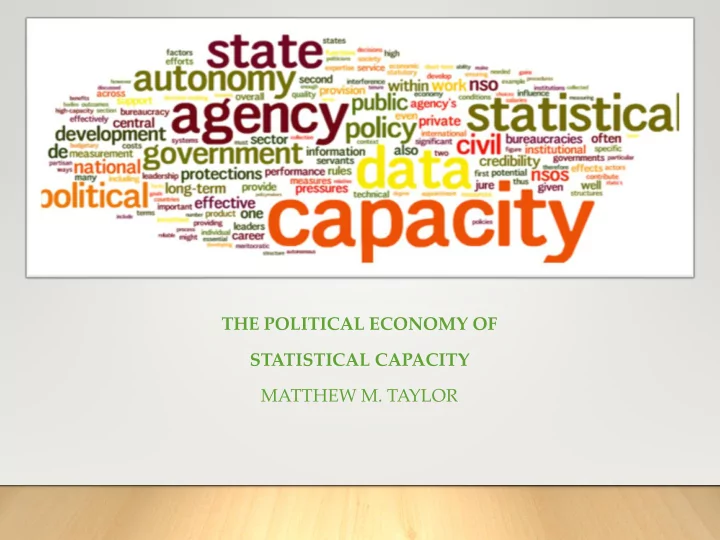

THE POLITICAL ECONOMY OF STATISTICAL CAPACITY MATTHEW M. TAYLOR
1 The relevance of NSSs • Reliable data are central to public administration • Recent recognition that National Statistical Systems are integral to the achievement of new Sustainable Development Goals (SDGs) • “Data are the lifeblood of decision- making”
2 Political Economy Challenges of NSO Capacity-Building WHY NOT CREATE WHY CREATE CAPABLE NSOS? CAPABLE NSOS? • Resource scarcity • Constrain future incumbents • Contingency • Monitor future incumbents • Misaligned incentives • Short x long-term • External pressure • Accountability • Past agreements among members of regime • Signal policy credibility
3 Towards autonomous NSOs? • United Nations (2003): • De jure protections “A special circumstance • Collegiate tenure affects statistics: the • Budget • Review results of the activities of statistical agencies • De facto protections must be replicable to • Agency credibility be believable, but • Expertise realistically the user • Popular legitimacy and cannot replicate them.” diffuse support
4 The challenge of measuring NSO capacity and autonomy • Bureaucratic capacity + • Data on esprit de corps + education + Technical capacity specialization Bureaucratic Statutory • Technical capacity capacity + protections • Internal surveys of NSO NSOs capacity • Procedural soundness • Statutory protections
5 NSO capacity Credible Governance data Outcomes State capacity
Thank you. mtaylor@american.edu
Recommend
More recommend